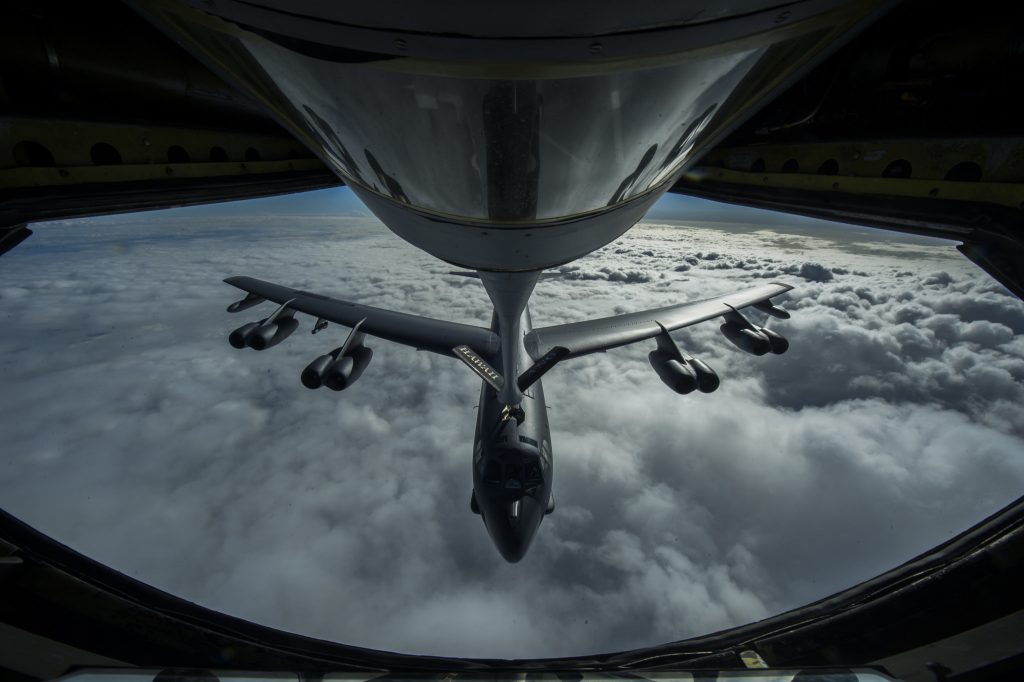 A B-52 Stratofortress is refueled in-flight April 2, 2014 over the Pacific Ocean. (Photo by Staff Sgt. Nathan Allen/ Air Force)
A B-52 Stratofortress is refueled in-flight April 2, 2014 over the Pacific Ocean. (Photo by Staff Sgt. Nathan Allen/ Air Force)The construction at Louisiana’s Barksdale Air Force Base includes building renovations near long-vacant “alert pads,” where during the Cold War aircraft capable of carrying nuclear weapons once sat ready on a continual basis. So-called “strip alerts” were discontinued in 1991 after the Soviet Union’s collapse.
In an interview published Sunday by Defense One, Air Force Chief of Staff Gen. David L. Goldfein called the construction a step toward ensuring the military is prepared for all possibilities. The service is “not planning for any specific event, but more for the reality of the global situation we find ourselves in and how we ensure we’re prepared going forward,” he said.
The effort comes as the Pentagon mulls a multibillion-dollar modernization for its aging nuclear arsenal, and as it grapples with North Korea’s steady advancements in fielding a nuclear intercontinental ballistic missile.
U.S. Strategic Command, which oversees the military’s nuclear weapons from its headquarters in Nebraska, denied that any discussions are underway to place B-52s on alert. A spokesperson said that reports suggesting otherwise were mischaracterized.
“The day we are not prepared is the day something can happen,” said Bekah Clark, a spokeswoman for Strategic Command. “So are we preparing for the worst? Absolutely. But we were preparing yesterday, and the day the before that, and so on. And we’ll be preparing tomorrow, too.”
The Air Force, likewise, downplayed that possibility. The service is neither planning nor preparing to put B-52s on alert, said Capt. Mark Graff, a spokesman. Ongoing efforts to upgrade alert facilities, munition storage areas, dining halls and other infrastructure are necessary to “maintain a baseline of readiness,” he said.
“We do this routinely as part of our organize, train and equip mission so our forces are ready to respond when called upon,” he said.
The Pentagon’s current arrangement for nuclear weapons calls for intercontinental ballistic missile facilities to be kept on alert, along with a number of submarines that carry nuclear missiles at sea. The 2010 New START Treaty signed by the United States and Russia allowed them to keep some heavy bombers, but forbid them from putting them on alert status during peacetime.

